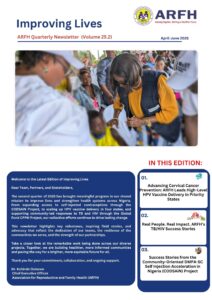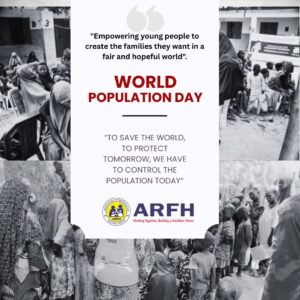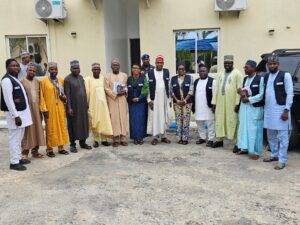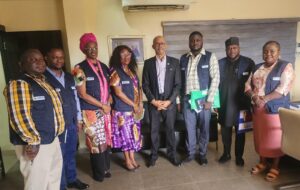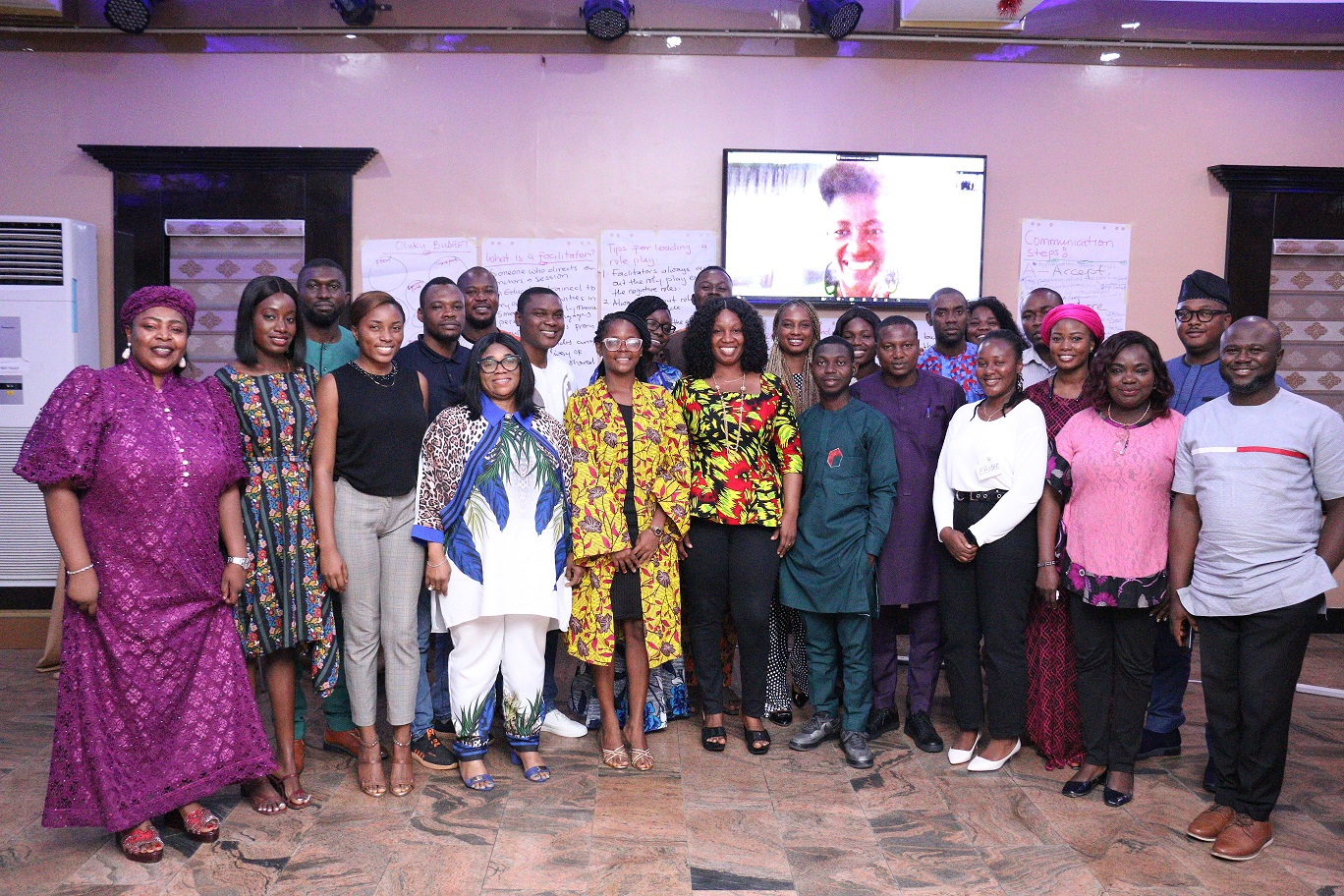
16 Newly Trained Ebi-Alayo (Sinovouyo) Facilitators with ICHSSA-2 project staff and CWBSA Coach. Picture Credit: ICHSSA-2 Project, ARFH
In recent years, there have been significant increase in the cases of violence against children, girls and women across the globe (WHO, 2020) but most especially in low- and middle-income countries where families face the burden of abject poverty, unemployment, and lack of access to basic services. Data from WHO (2021) show that 1 in 3 women, around 736 million across their lifetime are subjected to physical or sexual violence by an intimate partner or sexual violence from a non-partner – a number that has remained largely unchanged over the past decade. More worrisome is how these further fuels high rates of preventable diseases such as HIV/AIDS, thus halting the progress towards controlling the epidemic.
Available evidence shows several effective parenting programmes focused on developing positive parenting practices and improving caregiver-child relationships, have been developed in high-income countries. However, there are currently few evidence-based interventions well-suited for the cultural diversity and developmental contexts of low- and middle-income countries.
In Nigeria, the partnership between Association for Reproductive and Family Health (ARFH) through the USAID funded Integrated Child Health and Social Services Award (ICHSSA-2) project and Clowns Without Borders South Africa (CWBSA) seeks to improve communication and engender mutual respect, amongst parents and adolescents. This is critical to achieving common understanding of GBV, HIV prevention messages, and resilience building, as succinctly stated by Dr. Felix Iwuala, Chief of Party, ICHSSA-2 Project.
Bringing evidence-based programmes from high-income contexts is oftentimes difficult due to several factors- high costs of the programmes and cultural compatibility or orientation. Thus, the Ebi-Alayo Caring Families Programme for Parents and Adolescents also known as Sinovuoyo Teens was uniquely developed to address these key challenges. We commend our AOR, Doreen Magaji, for facilitating the adaption and implementation of the Nigeria version of Sinovuyo-‘Ebi-Alayo’.
What is the Ebi-Alayo Programme?
The Ebi-Alayo teens parenting programme is an evidence-based parenting intervention for caregivers and their adolescent children. The programme is grounded in social learning theory and aims to address some of the common structural causes of violence against adolescents in low-resource settings. This includes strengthening interpersonal relationships between parents and teens by supporting parents in developing effective behaviour management strategies, in order to reduce both the risk for maltreatment at home and exposure to risks of violence and abuse outside the home. In line with the design, both parents and teens are involved in programme activities.
“The Ebi-Alayo Programme is a context specific and evidence informed intervention that seeks to strengthen the relationship between parents and teens for an open, caring and trusting relationships between caregivers and their teenagers. Some of the key benefits of the programme include increase involved parenting and social support; increase parental supervision and monitoring of children; decrease inconsistent and harsh discipline methods. Others are reduce parenting stress and depression as well as increase parent/teen planning to avoid risks in the community. No doubt, this will have a lasting impact across project communities even after the life of the project” Ms Faith Lannap, Deputy Chief of Party, ICHSSA-2 Project.
“The desire is for the trained facilitators to work towards contributing to the planned OVC Preventive targets for the ICHSSA 2 Project in FY22, of reaching 6,246 adolescents in Lagos and Edo states. The approach will reach these teens and their parents in a reinforcing manner over 14 sessions. These are not just numbers we will be counting but human beings who will further impact their communities based on the lessons from the programme”. Mr. Jimin Sontyo, Director of Strategic Information, ICHSSA-2 Project.
Capacity Strengthening of 16 Facilitators
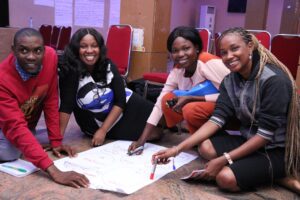
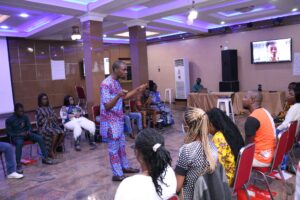
To bring the programme to life, the capacity of 16 facilitators (8 females and 8 males) were strengthened to rollout the Ebi-Alayo programme in 6 LGAs across Lagos and Edo States. This was done in partnership with CWBSA. Aside the leadership qualities, part of the key skills required by the facilitators are the abilities to work with families, work as a team and youth friendliness. The facilitators were taken through a rigorous 5-Day training by CWBSA which introduced them to the programme components and session by session content delivery guide. It also helped the participants understand their role in bringing the programme to life across the communities where we work.
Before the training, I was a bit nervous and don’t know what to expect. However, when the training started, I learnt a lot as a mother myself. The training will first help me to improve my relationship with my 2 children while passing on the knowledge and skills to other mothers and teens within my community. Oluwatosin Adeyanju, one of the trained facilitators.
The Integrated Child Health and Social Services Award (ICHSSA-2) Project is currently being implemented in twenty (24) Local Government Areas in Lagos (11) and Edo (13) States by the Association for Reproductive and Family Health (ARFH) with support from USAID, and working in partnership with FHI 360 and Project HOPE through ten (13) community-based organizations (CBOs) providing quality care, treatment and support to orphans and vulnerable children (OVC). The project has supported over 120,000 beneficiaries across Lagos and Edo States.

